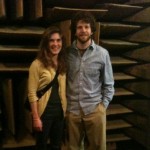
Over the past few years, Bob MacCallum has been focused on one question: can music evolve through natural selection? In this episode of Composer Quest, we discuss Bob's amazing evolutionary music project, DarwinTunes. In the DarwinTunes experiment/game, participants rate and "mate" short sound loops to breed new musical offspring. Although it started with randomly generated sine waves and noise, the evolved sounds are now surprisingly musical. Also in this episode, we talk about Bob's scientific analysis of over 70,000 Billboard hit songs from the past half-decade, which has revealed three major revolution years in music history: 1964, 1983, and 1991.








